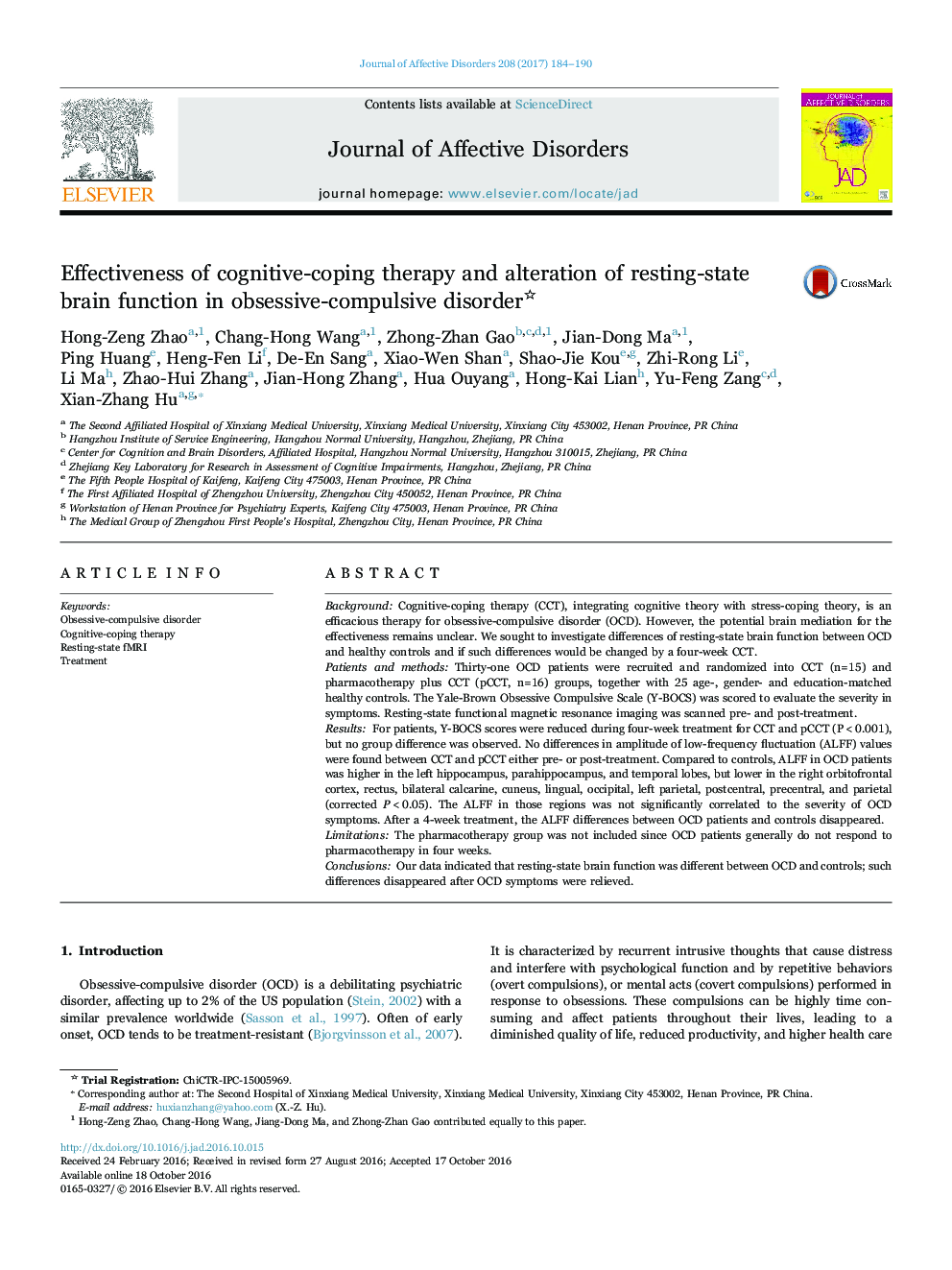| کد مقاله | کد نشریه | سال انتشار | مقاله انگلیسی | نسخه تمام متن |
|---|---|---|---|---|
| 5722075 | 1608117 | 2017 | 7 صفحه PDF | دانلود رایگان |
- This is a longitudinal cohort study comprising 31 OCD patients and 25 healthy controls.
- The resting-state brain function was significantly different between OCD and healthy controls.
- The differences of resting-state brain function were disappeared after four-week of cognitive-coping therapy.
BackgroundCognitive-coping therapy (CCT), integrating cognitive theory with stress-coping theory, is an efficacious therapy for obsessive-compulsive disorder (OCD). However, the potential brain mediation for the effectiveness remains unclear. We sought to investigate differences of resting-state brain function between OCD and healthy controls and if such differences would be changed by a four-week CCT.Patients and methodsThirty-one OCD patients were recruited and randomized into CCT (n=15) and pharmacotherapy plus CCT (pCCT, n=16) groups, together with 25 age-, gender- and education-matched healthy controls. The Yale-Brown Obsessive Compulsive Scale (Y-BOCS) was scored to evaluate the severity in symptoms. Resting-state functional magnetic resonance imaging was scanned pre- and post-treatment.ResultsFor patients, Y-BOCS scores were reduced during four-week treatment for CCT and pCCTÂ (P<0.001), but no group difference was observed. No differences in amplitude of low-frequency fluctuation (ALFF) values were found between CCT and pCCT either pre- or post-treatment. Compared to controls, ALFF in OCD patients was higher in the left hippocampus, parahippocampus, and temporal lobes, but lower in the right orbitofrontal cortex, rectus, bilateral calcarine, cuneus, lingual, occipital, left parietal, postcentral, precentral, and parietal (corrected P<0.05). The ALFF in those regions was not significantly correlated to the severity of OCD symptoms. After a 4-week treatment, the ALFF differences between OCD patients and controls disappeared.LimitationsThe pharmacotherapy group was not included since OCD patients generally do not respond to pharmacotherapy in four weeks.ConclusionsOur data indicated that resting-state brain function was different between OCD and controls; such differences disappeared after OCD symptoms were relieved.
Journal: Journal of Affective Disorders - Volume 208, 15 January 2017, Pages 184-190
